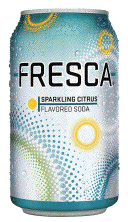
|
||||||||||||||||||||||||||||||||||||||||||||||||||||||
|
After wading through all the options, many of which included mastering system options that I don't care about, and have nothing to do with the problem I want to solve, I decided to give MAMP a try, and so far so good. It's doing what I want to do, without having to enable root access. Why Feedburner is trouble, day 2
First, I don't use Feedburner, never have, never will. However, if Google ties Feedburner to Google Reader that still hurts people like me, because my feed doesn't work as well with Google Reader. Now let's take a deeper look at "doesn't work as well." It could end up meaning "doesn't work at all." It's quite possible in the second or third iteration that Google drops support for non-Feedburner feeds. It wouldn't be unprecedented, far from it. Google Blogoscoped has a list of Google products that "prefer" other Google products. I've never seen Google not do this when they had the chance. The instant they bought Blogger they tied it to their toolbar. If they had used an open API the toolbar would have worked with all blogging tools. Google just doesn't think that way, sorry to say. The ability of one user to opt out would do absolutely nothing to stop or even diminish the negative effects of monopolistic tying. And users show no inclination to do anything for the benefit of the Internet as a whole, so there's no reason to believe any of them would withhold their support of Feedburner just because it screws with the benefits of a level playing field in the RSS ecosystem. Certainly not enough to persuade Google not to tie the two products. And if you still think opting-out is some kind of answer, consider that the whole point of tying is to penalize people who opt-out. Note that I'm not asking anyone to do anything, and I'm not even saying Google is doing anything wrong. However, it could be that there are people at Google who understand the benefits of keeping things open, and if I can help them argue inside Google, then I feel I've done something good. Betsy Devine has opted out of using MSIE, but that doesn't mean she doesn't have to deal with sites that only work with that browser (it isn't even available on the computer she uses). Check out this comment by Kevin Marks. Hey works at Google. Jeremiah Owyang explains how Google may favor Blogspot sites in the search engine. |
Dave Winer, 52, pioneered the development of weblogs, syndication (RSS), podcasting, outlining, and web content management software; former contributing editor at Wired Magazine, research fellow at Harvard Law School, entrepreneur, and investor in web media companies. A native New Yorker, he received a Master's in Computer Science from the University of Wisconsin, a Bachelor's in Mathematics from Tulane University and currently lives in Berkeley, California. "The protoblogger." - NY Times.
"The father of modern-day content distribution." - PC World.
"Helped popularize blogging, podcasting and RSS." - Time.
"The father of blogging and RSS." - BBC.
"RSS was born in 1997 out of the confluence of Dave Winer's 'Really Simple Syndication' technology, used to push out blog updates, and Netscape's 'Rich Site Summary', which allowed users to create custom Netscape home pages with regularly updated data flows." - Tim O'Reilly.
My most recent trivia on Twitter. Comment on today's On This Day In: 2006 2005 2004 2003 2002 2001 2000 1999 1998 1997.
|
|||||||||||||||||||||||||||||||||||||||||||||||||||||
|
© Copyright 1997-2007 Dave Winer. Previous / Next |
||||||||||||||||||||||||||||||||||||||||||||||||||||||
 Thanks for all the great
Thanks for all the great 



